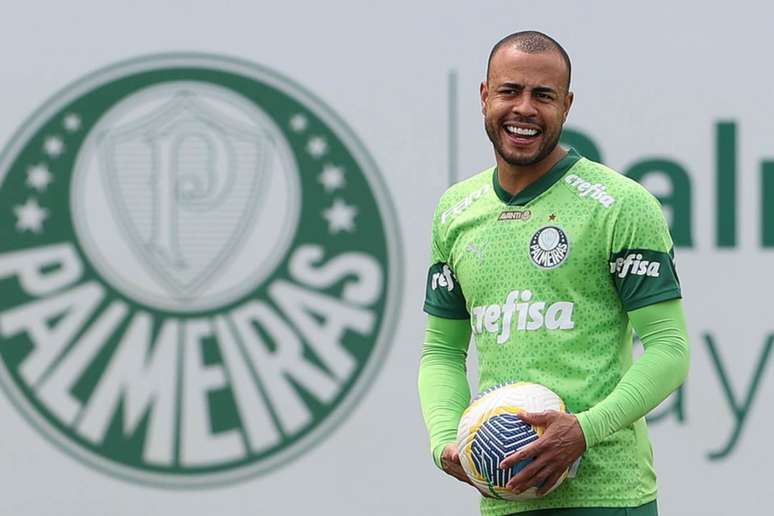The inflation target has come under criticism from Lula. Economists interviewed by DW say it could be counterproductive to push it to 2023. Get it: Brazil’s inflation target has come under repeated criticism from President Luiz Inácio Lula da Silva in recent weeks. For him, the widening of the inflation target could pave the way for the Central Bank (CB) to reduce the base interest rate, the Selic, which is now at 13.75% per annum – which would give the economy a boost brazilian.
Amid the clashes between Lula and BC President Roberto Campos Neto, there were economists who classified the inflation target – currently at 3.25%, with a tolerance of 1.5 points more or less – as unrealistic , due to the current trajectory of prices, which have risen in recent years due to the covid-19 pandemic and the war between Russia and Ukraine. In 2022, Brazil recorded inflation of 5.79%.
Some specialists have also argued that Brazil made a mistake by lowering the center of its inflation target, which was kept at 4.5% between 2005 and 2018. For them, it would be pertinent to raise the target close to 4%.
However, for the economists interviewed by DW, a revision of the current target would be counterproductive and the change could be interpreted by economic operators as a negative sign.
Revise the goal or not?
The 2023 inflation target was set in June 2020 by the National Monetary Council (CMN), which at the time still maintained the inflation targets for 2020, 2021 and 2022, respectively, at 4%, 3.75% and 3.5%.
At the time, the government stressed that the decision maintained the pace of gradual reductions in the target each year, gradually bringing Brazil towards the inflation target levels observed by most emerging economies. And, again, that the pandemic would contribute to the reduction of the target, because the economic crisis would bring down most prices – which, in fact, has not happened.
The CMN must set inflation targets by the end of June, three years ahead. That is, the body is expected to decide on the target for 2026 by June of this year.
“Brazil should not revise its inflation target at this time [de 2023], as this could have the opposite effect. I mean, economic agents might think that BC will be more flexible with inflation, and that will put pressure on inflation and interest rates in the future,” says Joelson Sampaio, professor of economics at the São Paulo School of Economics to the Fundação Getúlio Vargas (FGV/EESP).
The specialist believes it is important not to change the inflation target for this year, but to discuss a possible revision for 2024, 2025 and 2026. “The act of pursuing the target sends a message that the country is committed to monetary policy. Brazil is not ‘not hitting the target, it’s chasing the target – and that’s the most important thing,’ Sampaio underlined.
Also for Josilmar Cordenonssi, professor of Finance and Economics at the Universidade Presbyteriana Mackenzie (UPM), Brazil should not revise the current inflation target, because the effects of monetary policy take at least six months to have effects on the real economy. Furthermore, such a move would be a bad sign for the future.
“It’s counterproductive, as everyone would think: ‘Is targeting inflation really worth it after all?’ Therefore, this uncertainty can undermine the credibility of monetary policy now and in the future. It is very difficult to gain credibility, but very easy to lose it,” says Cordenonssi.
He points out that the US and the eurozone have inflation targets of 2%. “Even though inflation in the euro area has reached almost 10% [em 2022], there is no question of changing the goal to align expectations about the future. And this is not just a financial problem.
Brazil adopted inflation targeting in 1999, with an initial target of 8%. According to the BC, since the creation of the target regime, inflation has been outside the tolerance range in seven years: 2001, 2002, 2003, 2015, 2017, 2021 and 2022.
Several countries around the world have used inflation targeting since the 1990s to set limits on price changes and prevent them from spiraling out of control – getting too high or too low – causing imbalances in the economy as a whole.
Direct relationship between Selic and inflation target
The Selic is one of the main elements of the monetary policy strategy in Brazil and the Central Bank uses the base interest rate as a tool to control inflationary pressure and ensure price stability.
When inflation is above target, as it currently is, the CB can keep the Selic high or even raise it to discourage consumption and help inflation fall, as interest charged on loans, loans and cards credit scores are higher – and, as a result, the demand for goods and services decreases and can contribute to lower prices.
On the other hand, when inflation is below target, the CB can reduce the Selic rate to stimulate consumption and increase demand for goods and services. The Selic reduction stimulates borrowing, as the interest charged in these operations is lower. In other words, if interest rates fall, credit becomes more accessible and consumption increases.
Central bank autonomy
The BC’s autonomy was established in 2021, after former President Jair Bolsonaro passed a law passed by Congress. The president and the councilors of the BC now have a fixed mandate of four years, which does not coincide with that of the President of the Republic.
Since the agency’s board of directors cannot be fired for raising interest rates, the idea of the law was to protect these servants from possible intervention by the executive branch in measures such as fixing interest rates and monitoring the inflation, which has been regarded by specialists as a major institutional advance.
The BC has autonomy to define the Selic, however, the CMN is in charge of deciding on credit, inflation targeting and regulations on financial institutions. The CMN is currently formed by the Minister of Finance, Fernando Haddad; by the Minister of Planning, Simone Tebet; and by the president of the BC, Roberto Campos Neto. Each of them has the right to one vote and decisions are taken by simple majority.
The CMN met for the first time during the Lula administration this Thursday (02/16), however, the meeting did not include discussions on the revision of the inflation target. Haddad had already signaled two days earlier that the subject was not on the agenda of the meeting and, therefore, would not be discussed.
Source: Terra
Rose James is a Gossipify movie and series reviewer known for her in-depth analysis and unique perspective on the latest releases. With a background in film studies, she provides engaging and informative reviews, and keeps readers up to date with industry trends and emerging talents.







